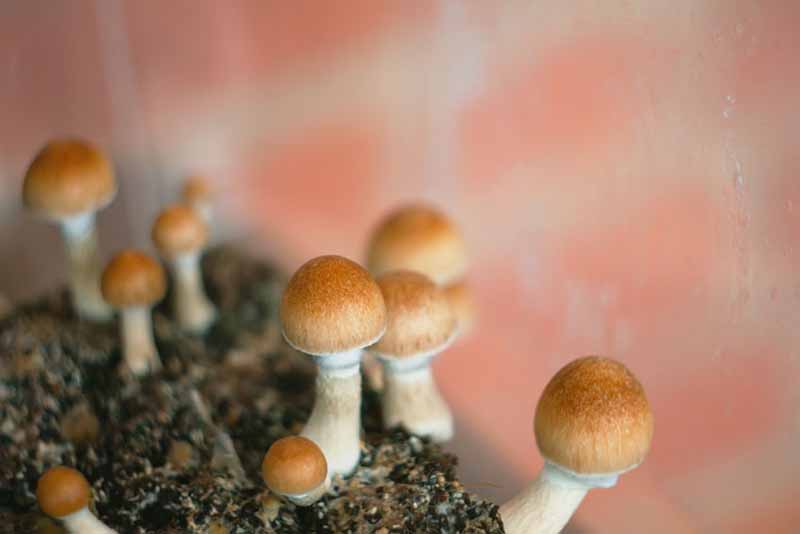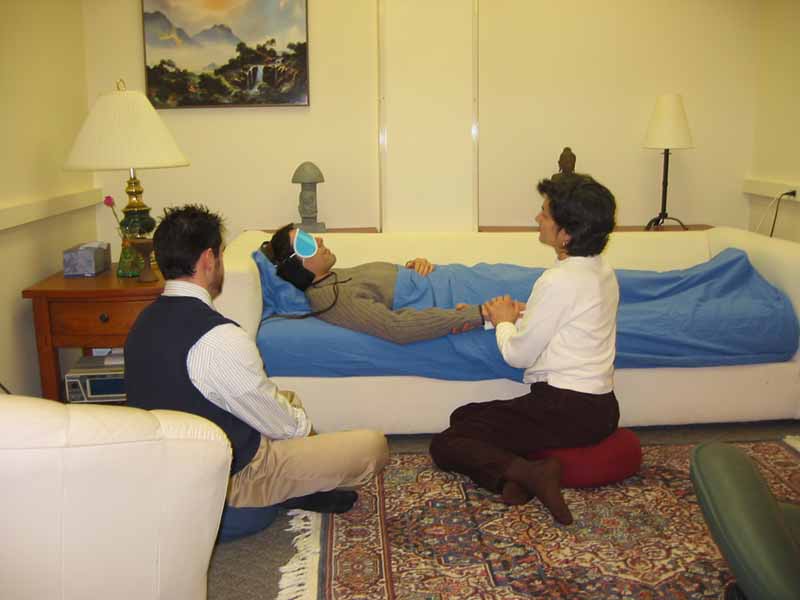
Magic mushrooms have been enjoying some time in the wellness sun lately.
On the heels of the widespread general acceptance of the healing and medicinal properties of Cannabis comes increased interest in the potential healing power of psilocybin mushrooms. The Global Wellness Institute tagged mushrooms containing the mind-altering psychedelic compound (of which there are about 200 species) as a wellness trend last year.
Evidence of psilocybin’s ceremonial and medicinal use dates as far back as the Aztec and Mayan cultures, and in the 1960s, Harvard University flirted briefly with the study of their use in psychology with the Harvard Psilocybin Project, famously led by Timothy Leary and Richard Alpert. The project was shut down after just a few years when fellow academics reportedly questioned the ethics of the project and the legitimacy of the research. Psilocybin became illegal in many countries shortly thereafter, bringing much related scientific exploration to a halt.
Today, however, we’re seeing a surge of interest and new studies, such as those coming out of the Psychedelics Research Unit at Johns Hopkins University in Baltimore, Maryland.

In fact, life sciences company COMPASS Pathways is on track to developing a treatment for depression using psilocybin, to which the U.S. Food and Drug Administration (FDA) recently gave “breakthrough therapy” designation. This means “an accelerated research and approval process for a drug with strong preliminary evidence showing it would be a substantial improvement over currently available therapies,” according to HealthLine. Four hundred patients are currently enrolled in the trial which will take place in Europe and North America over the next year or so.
It’s not a cure-all and there are warnings. Reactions to psilocybin including panic, violent behavior, suicidal thoughts, schizophrenia-like psychosis, and convulsions have been reported, among other things. But the science is promising for a number of applications.
Here are four of them:
Depression and anxiety
Researchers at Johns Hopkins and New York Universities have studied patients with cancer-related anxiety and depression. Both studies found that patients who received treatment with psilocybin showed significantly decreased levels of depression and anxiety and increased quality of life. In one study they also showed increases in life meaning and optimism, and decreases in death anxiety, cancer-related demoralization, and improved spiritual wellbeing. The positive effects were sustained in most patients six months later.
In another, smaller study at the Beckley Institute, researchers gave oral psilocybin to 20 patients with treatment-resistant depression, and found that all of them showed some reductions in their depression scores at one week post-treatment. Maximal effects were observed at five weeks, with results remaining positive at three and six months.
PTSD (Conditioned Fear Response)
Researchers at the Lieber Institute for Brain Development found that low doses of psilocybin accelerate the elimination of the conditioned fear response in mice. Mice were injected with varying doses of psilocybin or a saline solution, then exposed multiple times to electric shock after an audio cue. When the shock was removed to retrain the mice not to fear the cue, those injected with low doses of psilocybin overcame the fear faster than both those who received higher doses and those who received the saline solution. The results could pave the way for the exploration of psilocybin as “a potential treatment for post-traumatic stress disorder and related conditions in humans,” according to Real Clear Science.
Smoking cessation
A study at Johns Hopkins found that participants trying to stop smoking achieved an 80% abstinence rate over six months when taking a monitored psilocybin program combined with cognitive behavioral therapy. According to the researchers this is compared to an approximately 35% success rate for patients taking varenicline, which is widely considered the most effective smoking cessation drug. “When administered after careful preparation and in a therapeutic context, psilocybin can lead to deep reflection about one’s life and spark motivation to change,” Matthew Johnson, Ph.D., a corresponding author on the study, said. The researchers warned that the findings “are not an endorsement of do-it-yourself psychedelic drug use for smoking cessation.”
Alcoholism
Researchers at the New Mexico Health Sciences Centre studied 10 alcohol dependent volunteers. These were orally administered psilocybin in one or two supervised sessions combined with Motivational Enhancement Therapy and therapy sessions devoted to preparation for and debriefing from the psilocybin sessions. Abstinence increased significantly following psilocybin administration and was largely maintained 36 weeks later. “These preliminary findings provide a strong rationale for controlled trials with larger samples to investigate efficacy and mechanisms,” wrote the study authors.
Spa Executive magazine is published by Book4Time, the world’s most innovative spa, salon, wellness, and activity management software. Learn more at Book4Time.com



